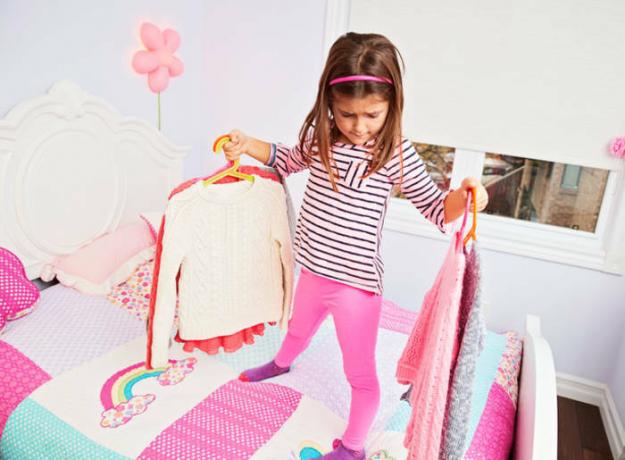Conflicts with a child can be repeated and develop into protracted quarrels. How can you avoid this? 5 working tips to help improve your relationship with your child
All parents have conflicts with children. Even if you think that your child is the most scandalous in the world, but the neighbors have Sveta as a golden child. Believe me, this Sveta is also giving her mom hysterics. And perhaps worse than your baby. Psychologists say that conflict between an adult and a child - this is the stage and way of development of the latter. The older the baby gets, the more he is inclined to "declare himself." From this point of view, it is important for parents not to "extinguish" the conflict and not to crush the baby with their adult authority, but, if possible, to avoid quarrels and screams using various psychological techniques.
For each age, these techniques are different, and what works at two years old will no longer cause any effect at four. Try to calm the screaming preschooler with the words “look, the bird has flown” or give him a lollipop instead of the coveted toy. This requires a more virtuoso approach and ingenuity. Moreover, the list of grounds for conflicts in 3-6 years is significantly expanding. At this age, children often enter
period of denial and drive you crazy with their endless no's. In addition, they are trying to become more independent and defend the right to make at least some decisions. In these conditions, one must try hard so that the apartment does not turn into a "war zone". How to do it? Read in our material.Reception 1. Ignore the child's “bad” behavior

Take it easy and turn on indifference mode / istockphoto.com
Many parents believe that there should be an immediate response to a child's misbehavior. However, after you've tweaked or reprimanded your baby, he often continues to do the same. In this case, how not to cry out and punish the child? Whatever you want, but indifference works best here. The fact is that for many children any parental reaction is important: both positive and negative are perceived as a manifestation of attention. If there is not enough attention in daily life, the child will deliberately piss you off in order to receive it.
In moments of bad behavior, it is important not to give this attention. Get drunk on valerian and do housework. Please note that for children 3-6 years old, such "moments" can last for 5 minutes or half an hour. It is necessary to endure this time in the form of the imperturbable Sphinx. The moment will come when the child grasps the relationship between your silence and his behavior. It is important to note: "how good it is that you stopped screaming." Also, be sure to invite your child to discuss the situation. Just do not forget that it is not the child himself that should be condemned, but his behavior.
Reception 2. Change the environment and the participants in the conflict
At 3-6 years old, attention-shifting technique still works. You just need to use it more creatively. For example, change your occupation, environment, or even the parties to the conflict. For example, when a child scandals about another candy, invite him to play hide and seek ("and the candy later"). If the cartoon requires, get yourself together and quickly go outside. If possible, you can hand the screaming child to that family member who is now more in the resource and can show greater flexibility and ingenuity towards the child.
Remember that any unfulfilled desire puts the child into a state of "fixation". The deeper he goes into it, the harder it is to get through to him. However, any change will easily correct this situation. It is important for you to choose what is right at the moment.
Reception 3. Offer your child a reasonable alternative

Give your child a "good" alternative to "bad" behavior / istockphoto.com
It happens that a child irresistibly wants to do what is forbidden to do. For example, paint on the wallpaper or chase a ball around the room. If you say “you can't do that,” expect conflict and disobedience. Try not only to explain why it is impossible, but also to suggest some alternative solution. For example, buy a large Whatman paper and attach it to the wall - this will be the place where you can draw. Instead of a soccer ball, put pins and give a light plastic ball - let the kid play bowling. If your daughter is gutting your makeup, buy her a baby makeup set. Do not be afraid to spoil your child: choosing an equivalent substitute, you teach him flexibility and the ability to listen to your inhibitions.
Reception 4. Criticize with an emphasis on good qualities
To prevent the ban or criticism from provoking violent indignation in the kid, you need to correctly and correctly “formulate” your position. Think about where you can shift the focus of the child's attention and how to make criticism look like a compliment. Start with the good and add a "but" at the end. For example: “you drew a beautiful drawing, but next time do it on paper, not on wallpaper”; "You jump very cool, but the sofa is not suitable for these purposes"; "You have chosen great clothes, but it will be cold outside."
This method helps, as they say, "sweeten the pill." The child, first of all, becomes pleased that you praised him. Therefore, he will accept the ban much easier, and there will be more chances that he will fulfill it in the future.
Reception 5. Give your child the freedom to choose

Let your child make choices wherever possible / istockphoto.com
From about three years of age, children begin a period of separation from their parents, which manifests itself in the “I myself” attitude. The kid wants to be independent in everything, and here it is very important to give him as much room for choice as possible. It is clear that he will not decide when to watch cartoons or go to bed. But what kind of cartoon it will be, or what to read before going to bed - this decision can be delegated to the child.
The more choices you have, the more your baby will feel that you respect his or her opinion. Accordingly, he himself will learn to respect your inhibitions. Just do not confuse "sinful with righteous" - do not put on the shoulders of a child that which is too early for him to decide. For example, he will definitely have to clean up toys - he has only the right to choose when he will do it. You need to dine in any case, but he can choose which of the options you offer he wants to eat. Do not turn democracy into permissiveness, and then the child will not have a desire to protest against the parents' decision.
You will also be interested to read:
Why a child does not like to be praised: the opinion of a psychologist
Taming the Shrew: 10 Tips on How to Punish Your Child




